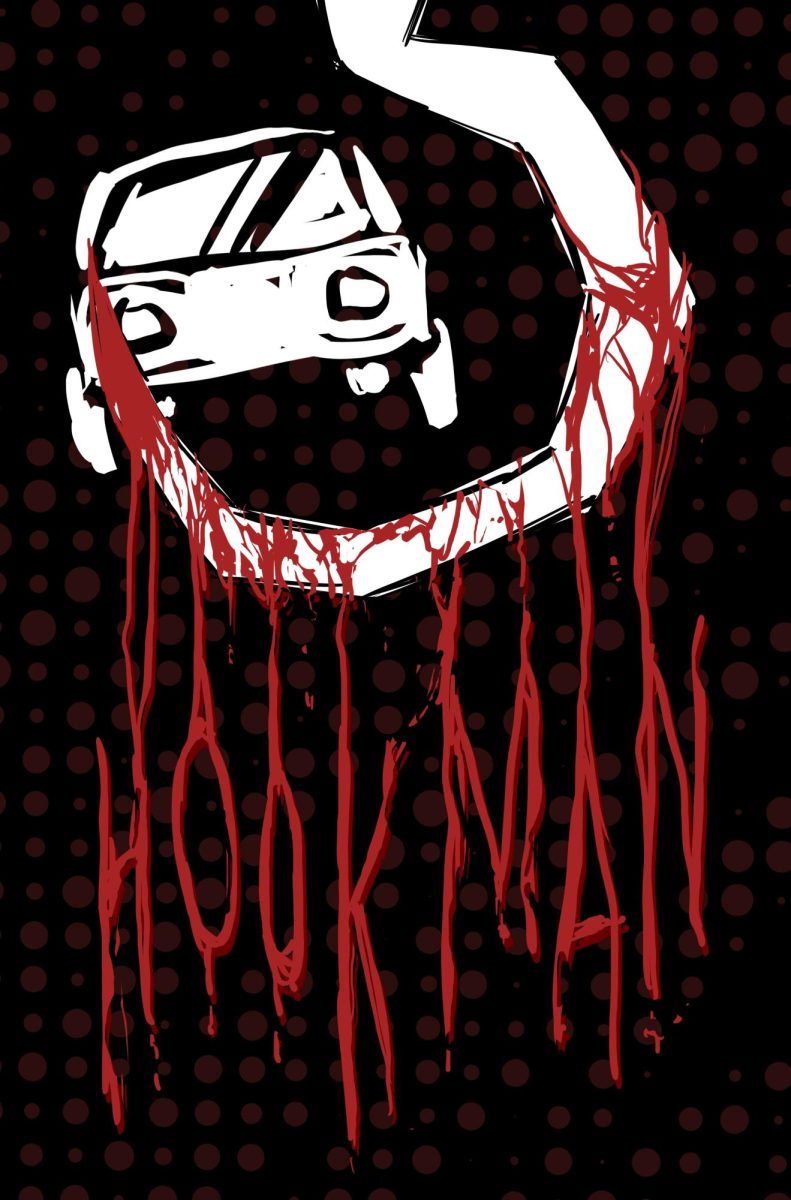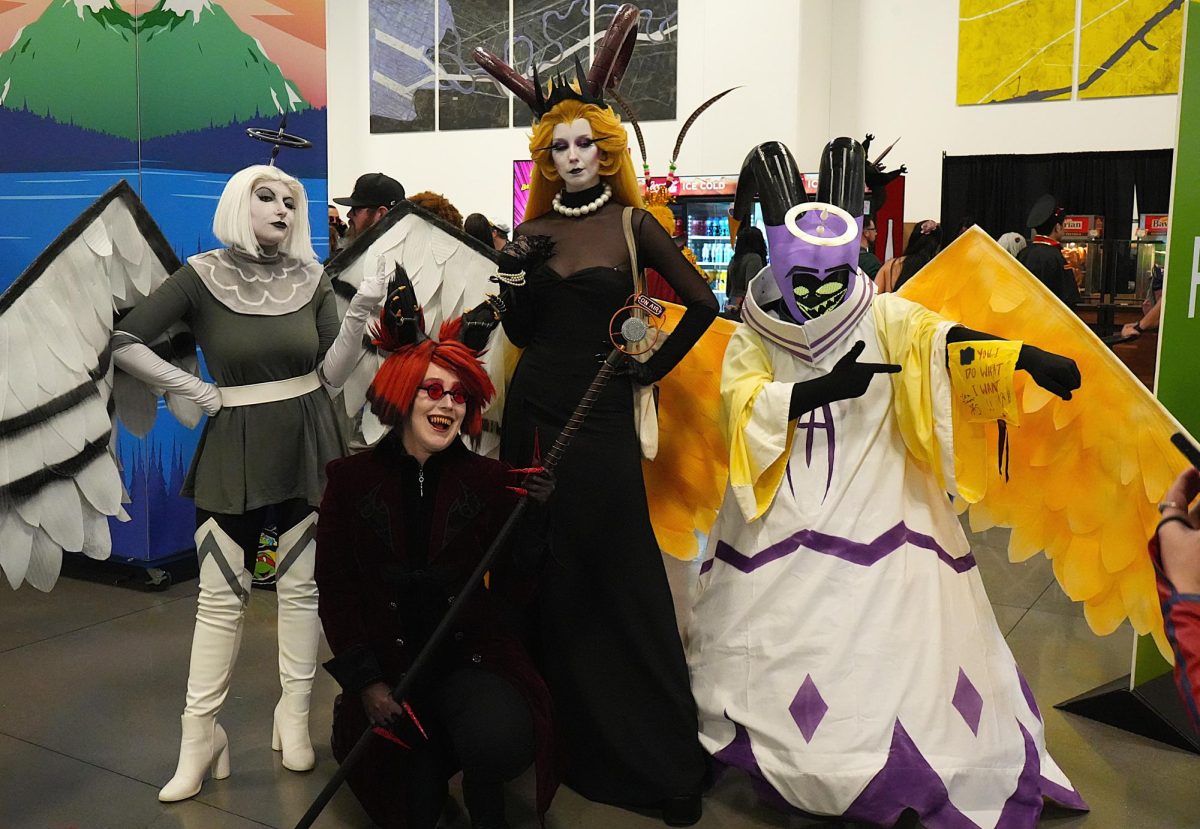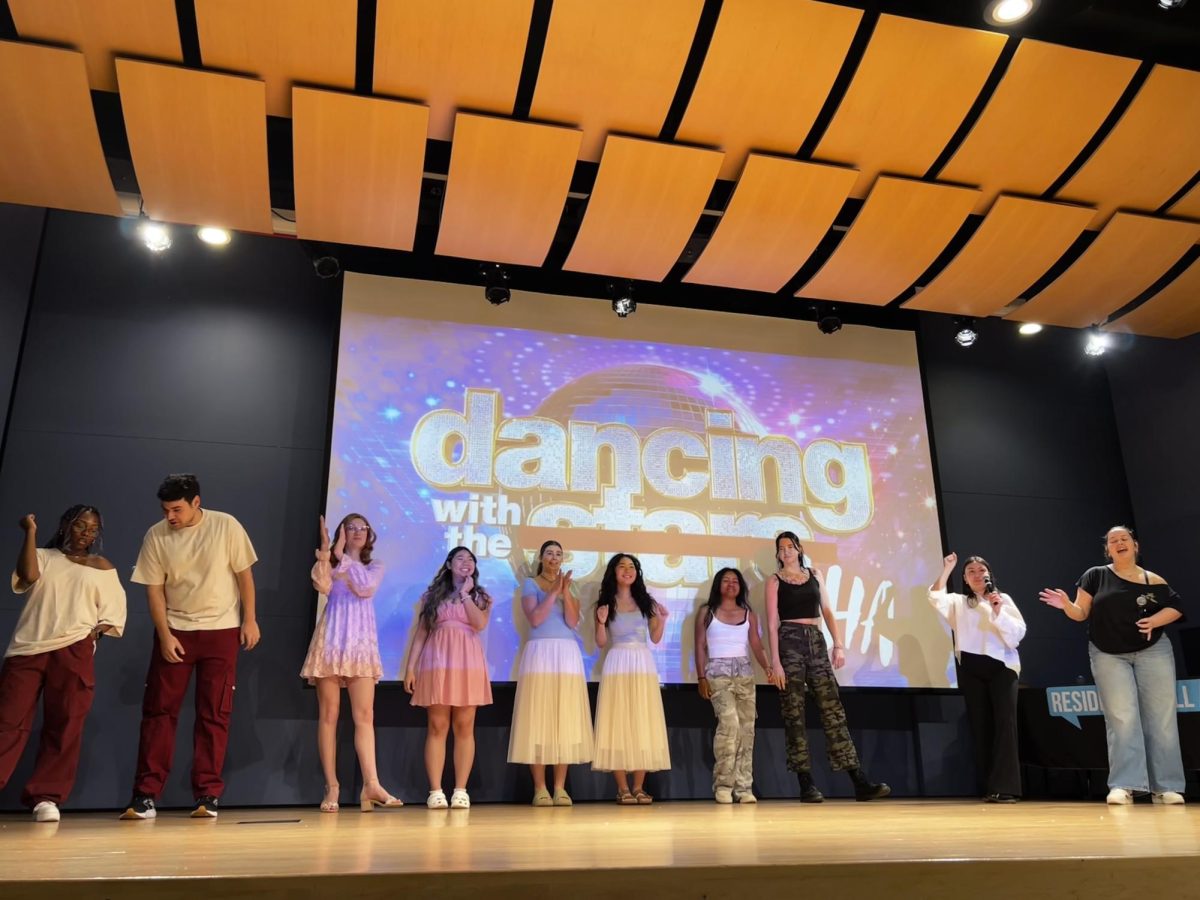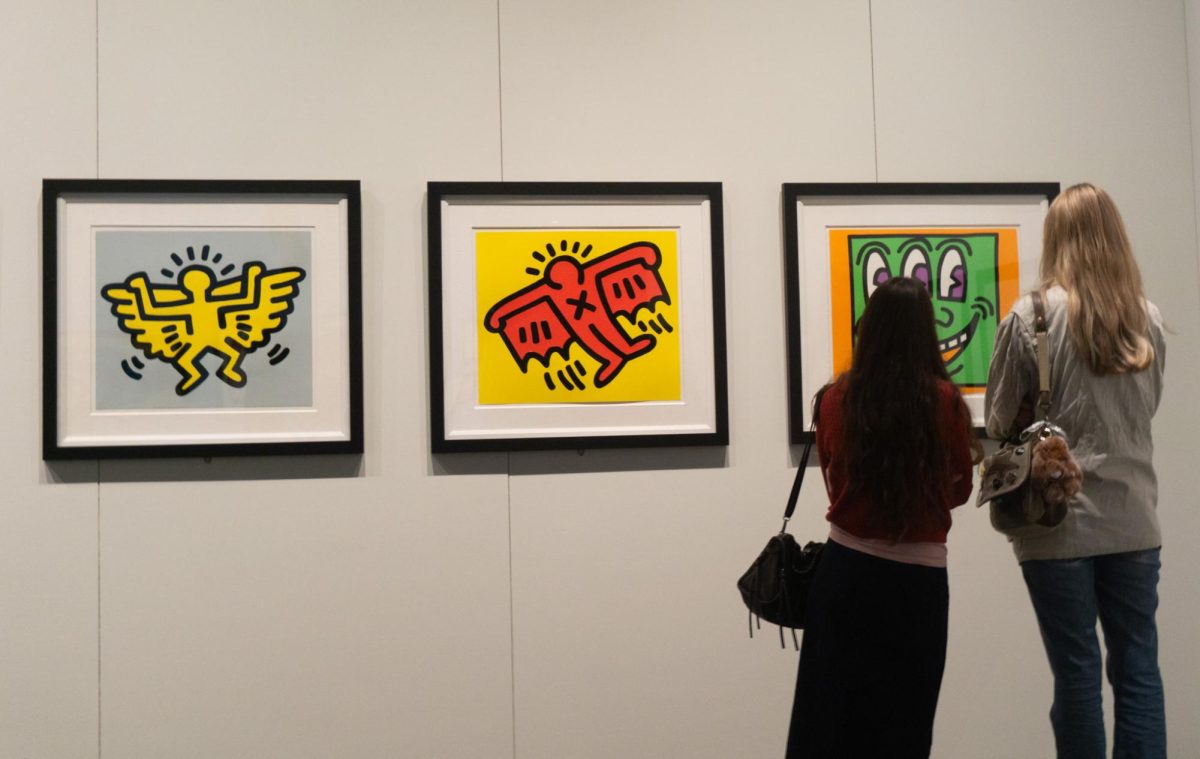The first year of college is already hard within itself, but when your mom plants a cautionary urban tale in your head about a serial killer that has a hook for a hand preying upon young women, things get weird.
The Seattle University Theatre Department kicked off the ‘23–’24 season with “Hookman,” an existential clasher comedy that follows California teen Lexi navigating homesickness, an awkward relationship with her roommate, icky men, anxiety about a hook-handed serial killer and the grief of her best friend’s death. Opening night was held Nov. 8 in the Lee Center for the Arts and there were seven more showings before closing out Nov. 18.
When Sunam Ellis, the director of “Hookman,” proposed “Hookman” be adapted, she didn’t initially think that it would be accepted. Sensational thrillers that feature blood and gore are not often seen in theater. To her surprise though, the theatre department was receptive and became excited to give it a try.
After reading the play’s plot description, viewers may assume a simple story. Yet, one will quickly find that there are a multitude of complexities.
The supporting character for Lexi is her best friend, Jess. The show opens with a flashback of the two driving from In-N-Out to the movies when disaster suddenly strikes and Jess is killed in an accident.
The audience is led to believe she was killed by a drunk driver, then possibly a murderer and eventually they realize that it was Lexi’s reckless driving that caused her best friend’s death. The flashback scene plays out a total of three times in a makeshift car onstage until it’s finally revealed that Hookman is simply a figment of Lexi’s imagination.
“We were thinking of Hookman as a human personification of her guilt kind of chasing her around and how trauma has reshaped her world so she was perceiving situations differently than other people were perceiving the situation,” Ellis said.
Throughout the play, the audience is able to see how Lexi is dealing with her grief through her attempts to suppress her emotions. The navigation of her trauma is written to highlight how trauma can distort the perception of our realities and memories regarding specific events.
Ellis added that she thinks people can have a lack of compassion for others at times because symptoms of trauma, anxiety and depression are often hidden. However, just because we can’t see when others are struggling doesn’t mean that others aren’t navigating emotional turmoil.
“You see someone go through something and trying to pretend like it’s fine, but as the audience we can see her perspective and see what she’s actually dealing with. [I think] maybe that can bring our consciousness up to the fact that people have their own trauma and that it looks different for everyone,” Ellis said.
Half of the cast were made up of first-years who had the opportunity to debut their acting skills.
Ben Freeman, a first-year communication and media and theatre double major, was more than excited to be cast as Hookman. Freeman was thrilled to have the opportunity to play a chillingly sketchy killer. He has played villains before, but not one quite as scary as Hookman.
“People look at you a little weird when you say you play a serial killer, but it’s always fun to get dark and scary…For me personally, I love that theater allows you to play another character and be someone else for a little bit and I think it’s extra fun when you get to be someone not like you,” Freeman said.
With an already established theater background, Freeman expressed that theater felt like a natural path forward for him and that he has found the Seattle U theatre department to be very welcoming.
Navy Williams, a first-year academic pathways major, was cast as Chloe—a young, annoying college student who carries a large thermos of coffee and wants you to sign her petition, though she doesn’t know what it’s for.
“Chloe is so weird like no one really knows what’s up with her. I don’t really know what’s up with her…[But] it made her character more interesting and added another layer of weird, mystery, existentialism to the play whereas if it was a clean-cut character it wouldn’t have had the same kind of spice,” Williams said.
Williams added that she found the delivery of Chloe’s epilogue to be the most challenging with her character. Chloe walks across the stage exclaiming “I died too!” to then point at random people in the audience and say “dead,” “die,” “you.”
“That was always the part of the show I struggled with the most because it’s just me on stage interacting directly with the audience…It’s nice to still have things that throw me for a loop and make me nervous,” Williams said. “It was a challenge trying to find a way to present the epilogue in a way that really made sense even when it didn’t fully make sense to me.”
As cast members encountered their own challenges in bringing their characters to life, the backstage crew was tasked with difficult circumstances themselves. Time between scene transitions was tight, there were moving parts and props and, of course, a lot of blood was spilled.
Robin Wheeler, a third-year theatre and interdisciplinary arts leadership double major, was the stage manager for “Hookman.” She was previously the stage manager for “French Scenes and other plays” in the spring. In comparing the two, Wheeler found that this show had way more challenges than she had encountered in the past and that there were a lot of new skills she was able to learn.
“It took a lot of work in order to get this show together. The production team has meetings weekly and at one point we had a meeting just about all the blood to make sure everything was in order. I think my favorite part was how technically challenging this show was and seeing everyone work so hard and to see all the overlap between elements was really enlightening and cool to witness and be a part of,” Wheeler wrote to The Spectator.
“Hookman” was a creative, abstract and chilling tale that invited audiences to explore themes of grief, trauma and guilt. Even though it’s a story that features a hook-handed serial killer, there’s something relatable about Lexi and how it can be a tumultuous experience when navigating the pressures of the world as a young adult. In observation of Lexi, one may begin to wonder what their own Hookman could be.








